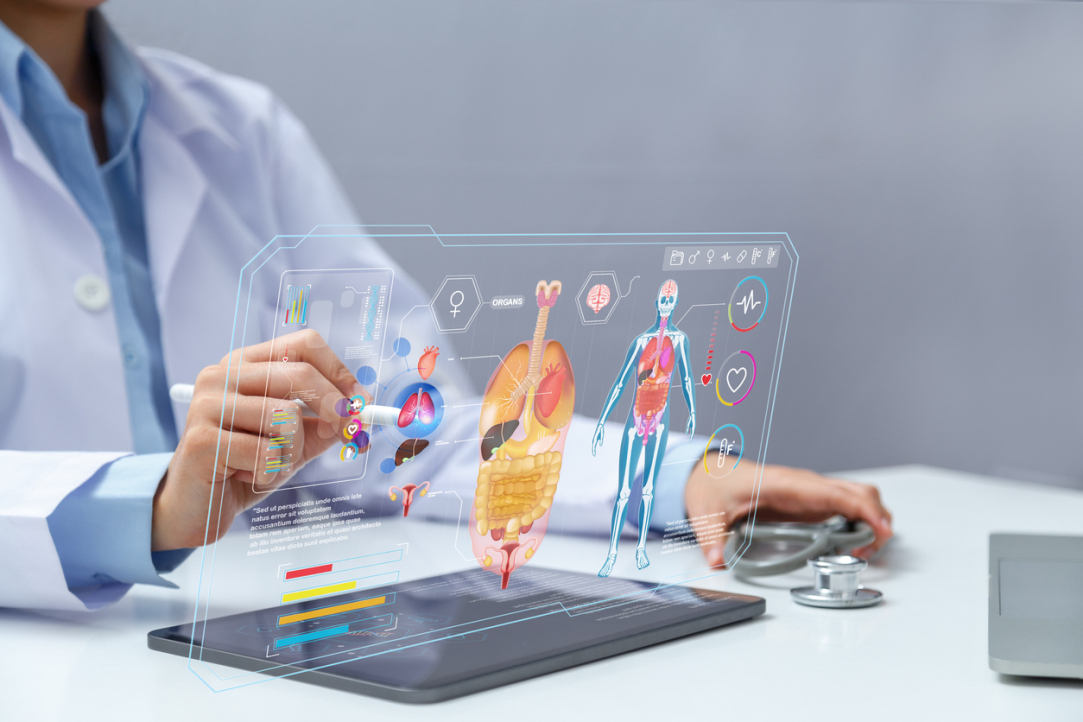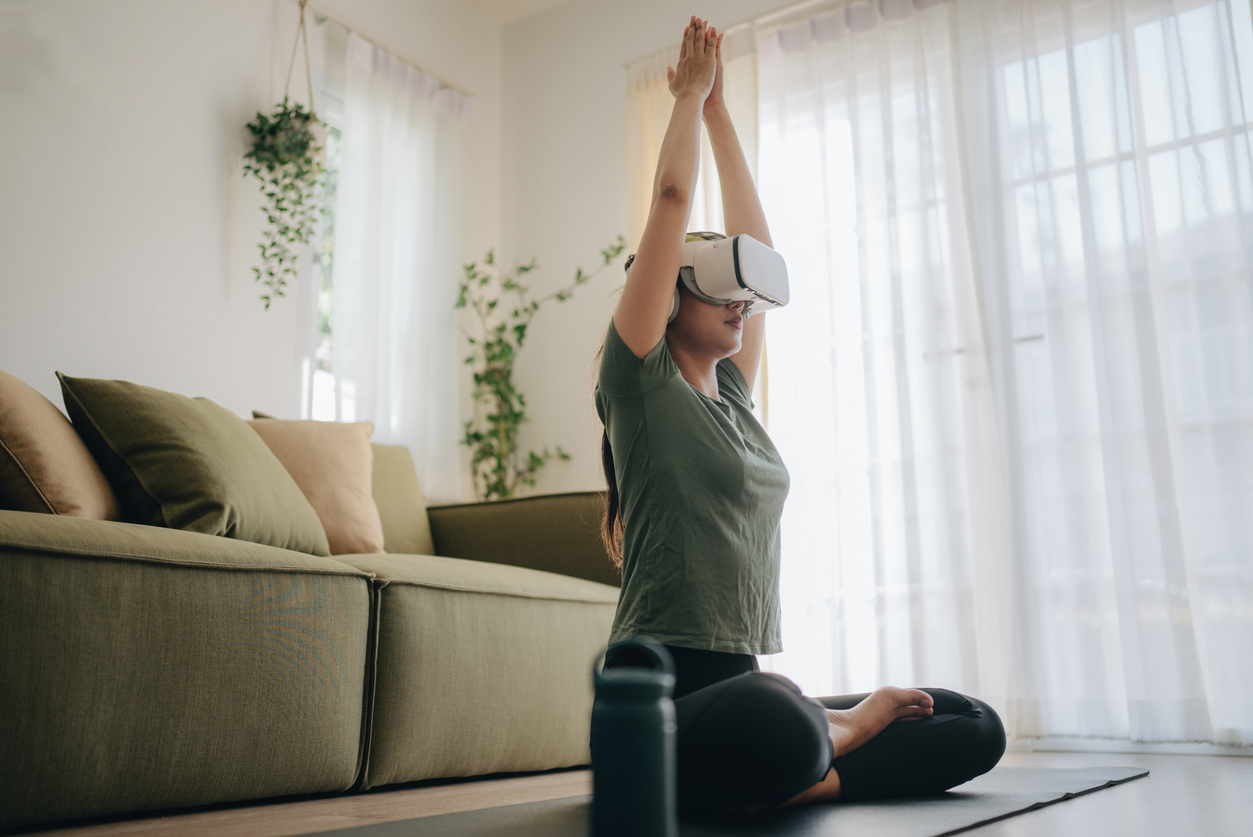HSE Scientists Propose AI-Driven Solutions for Medical Applications

Artificial intelligence will not replace medical professionals but can serve as an excellent assistant to them. Healthcare requires advanced technologies capable of rapidly analysing and monitoring patients' conditions. HSE scientists have integrated AI in preoperative planning and postoperative outcome evaluation for spinal surgery and developed an automated intelligent system to assess the biomechanics of the arms and legs.
At a joint scientific seminar held as part of the Human-Centred AI Strategic Project (in the framework of the Priority 2030 programme), HSE scientists presented two AI-driven solutions for use in medical practice. This field is not new for HSE University, noted Vice Rector Elena Odoevskaya in her opening address. Although the university does not offer educational programmes in medicine, it is involved in developing medical products and intends to enter this market.
'In terms of goals and objectives, we need to recognize that this is a product, not just a study. This means we must have partners, both external and industrial, and we need to understand how this product will continue to evolve with or without us. It’s all about the way we implement it,' she stressed.
Application for Spinal Marking
The first presentation focused on using AI for preoperative planning and postoperative outcome evaluation in spinal surgery. Vladimir Klinshov, Chief Research Fellow at the International Laboratory of Dynamical Systems and Applications of HSE Campus in Nizhny Novgorod, discussed how computer vision technologies can enhance the speed and quality of spine X-ray analysis, optimising the routine work of neurosurgeons. The working name of the product is VerteScan (derived from the word 'vertebra'). It is a service for viewing and analysing X-ray images of the human spine, featuring an automated marking system powered by artificial intelligence. 'We are developing a tool for automatic marking and analysis of spine X-ray images. We aim to relieve doctors of the routine aspects of their work, allowing them to focus on making the most important decisions. This product is designed by surgeons for surgeons. This means it will be intuitive for doctors, comfortable to use, and something they will want,' he said.
Spinal pathology accounts for 76% of patient referrals to the neurological service, and 72% of these referrals result in temporary disability. VerteScan will help identify the patient's anatomical features and disease progression, select the minimum appropriate level of surgical intervention, and provide personalised recommendations for implants and surgical techniques.
Medical institutions, manufacturers of medical implants, and professional associations of orthopaedic and spinal surgeons can be key partners in the project. To attract initial users and gather feedback, the developers plan to offer a free trial version of the software, with premium features available through subscription or a one-time payment.
If spinal surgery is performed suboptimally, it can accelerate the wear of intact vertebral motor segments, leading to treatment outcomes that are worse than the original condition, according to Andrey Bokov, Head of the Neurosurgery Department at Privolzhsky Research Medical University of the Russian Ministry of Health.
'Unless all relevant parameters are taken into account, the patient may feel better after surgery for a few years at most but is likely to experience decompensation afterwards. This person will spend an extended period on sick leave and be excluded from social life. If we can reduce the percentage of such cases, the social impact will be significant,' Bokov emphasised.
AI-Guided Physical Therapy
The second report featured an automated intelligent system designed to assess the biomechanics of the arms and legs. This system employs machine learning algorithms to analyse biomechanical data, which helps improve diagnosis and rehabilitation of patients significantly. The solution was presented by Andrey Kovalchuk, Project Head and Research Fellow at the Laboratory of Theory and Practice of Decision-Making Support Systems of the Faculty of Informatics, Mathematics and Computer Science, HSE Campus in Nizhny Novgorod. He emphasised that diseases of the musculoskeletal system are often described as the non-infectious epidemic of the 21st century. A promising area of rehabilitation for patients affected by these conditions is remote rehabilitation through digital technologies. Its implementation requires software-hardware complexes (SHCs) for video capture of movements.
The SHCs developed to date for remote motor rehabilitation share several common disadvantages: high cost, operational complexity, and the need for a doctor's constant presence. This makes them inaccessible for widespread use.
Remote rehabilitation helps increase the number of patients per doctor by reducing face-to-face interaction time while enhancing the quality of service by transferring some of the doctor’s functions to AI.
The patient no longer needs to visit the hospital, while still benefiting from a personalised approach and a flexible rehabilitation plan based on objectively measured parameters.

'As part of this project, we plan to develop a prototype of a mobile application using computer vision technology, designed for remote-controlled rehabilitation of patients. With this application, the doctor will be able to create an individualised training program for the patient and monitor key indicators, including the ratio of correctly to incorrectly performed repetitions per session and the angles of joint flexion,’ according to Kovalchuk.
The competitiveness of the system will depend on its autonomy, efficiency, and accessibility to a wide range of users, regardless of their location or financial circumstances.
The application will not only collect and analyse video data of movement scenarios and transmit it to the doctor for monitoring and correction, but also interact with the user in real time through voice commands, providing feedback on mistakes and events.
'The foundation of recovery is not medicine or even surgery; it is physical therapy. However, the movements must be performed regularly and correctly. Therefore, feedback on independently performed exercises is essential,' explains Anna Belova, Head of the Medical Rehabilitation Department at Privolzhsky Research Medical University and Chief Neurologist at the Ministry of Health of Nizhny Novgorod region.
See also:
‘HSE’s Industry Ties Are Invaluable’
Pan Zhengwu has spent the last seven years at HSE University—first as a student of the Bachelor’s in Software Engineering and now in the Master’s in System and Software Engineering at the Faculty of Computer Science. In addition to his busy academic schedule, he works as a mobile software engineer at Yandex and is an avid urban photographer. In his interview with the HSE News Service, Zhengwu talks about the challenges he faced when he first moved to Russia, shares his thoughts on ‘collaborating’ with AI, and reveals one of his top spots for taking photos in Moscow.
Scientists Present New Solution to Imbalanced Learning Problem
Specialists at the HSE Faculty of Computer Science and Sber AI Lab have developed a geometric oversampling technique known as Simplicial SMOTE. Tests on various datasets have shown that it significantly improves classification performance. This technique is particularly valuable in scenarios where rare cases are crucial, such as fraud detection or the diagnosis of rare diseases. The study's results are available on ArXiv.org, an open-access archive, and will be presented at the International Conference on Knowledge Discovery and Data Mining (KDD) in summer 2025 in Toronto, Canada.
Megascience, AI, and Supercomputers: HSE Expands Cooperation with JINR
Experts in computer technology from HSE University and the Joint Institute for Nuclear Research (JINR) discussed collaboration and joint projects at a meeting held at the Meshcheryakov Laboratory of Information Technologies (MLIT). HSE University was represented by Lev Shchur, Head of the Laboratory for Computational Physics at the HSE Tikhonov Moscow Institute of Electronics and Mathematics (HSE MIEM), as well as Denis Derkach and Fedor Ratnikov from the Laboratory of Methods for Big Data Analysis at the HSE Faculty of Computer Science.
AI vs AI: Scientists Develop Neural Networks to Detect Generated Text Insertions
A research team, including Alexander Shirnin from HSE University, has developed two models designed to detect AI-generated insertions in scientific texts. The AIpom system integrates two types of models: a decoder and an encoder. The Papilusion system is designed to detect modifications through synonyms and summarisation by neural networks, using one type of models: encoders. In the future, these models will assist in verifying the originality and credibility of scientific publications. Articles describing the Papilusion and AIpom systems have been published in the ACL Anthology Digital Archive.
HSE Researchers Develop Python Library for Analysing Eye Movements
A research team at HSE University has developed EyeFeatures, a Python library for analysing and modelling eye movement data. This tool is designed to simplify the work of scientists and developers by enabling them to efficiently process complex data and create predictive models.
‘Many Want to Create AI-Based Products and Become More Competitive’
In 2024, the online Russian-taught master’s programme ‘Artificial Intelligence,’ offered by the HSE Faculty of Computer Science, saw a record number of first-year students—over 300. What accounts for such a high interest in AI, how the curriculum is structured, and what new skills will graduates acquire? Elena Kantonistova, the programme’s academic director, shares more.
'I Would Like to Leave a Lasting Impact on Science'
Aibek Alanov pursues his own scientific research and leads two teams of scientists, one at HSE University and the other at AIRI. In this interview for the HSE Young Scientists project, he explores the parallels between today's AI researchers and early 20th-century physicists, discusses generative models, and shares his passion for bachata partner dancing.
HSE’S Achievements in AI Presented at AIJ
The AI Journey international conference hosted a session led by Deputy Prime Minister Dmitry Chernyshenko highlighting the achievements of Russian research centres in artificial intelligence. Alexey Masyutin, Head of the HSE AI Research Centre, showcased the centre’s key developments.
Drivers of Progress and Sources of Revenue: The Role of Universities in Technology Transfer
In the modern world, the effective transfer of socio-economic and humanities-based knowledge to the real economy and public administration is essential. Universities play a decisive role in this process. They have the capability to unite diverse teams and, in partnership with the state and businesses, develop and enhance advanced technologies.
AI on Guard of Ecology: Students from Russia and Belarus Propose New Solutions to Environmental Problems
An international online hackathon dedicated to solving environmental problems was held at HSE University in Nizhny Novgorod. Students employed artificial intelligence and computer vision to develop innovative solutions for image segmentation, predictive modelling (forecasting future events based on data from the past) of emissions and creating chatbots for nature reserves and national parks.




